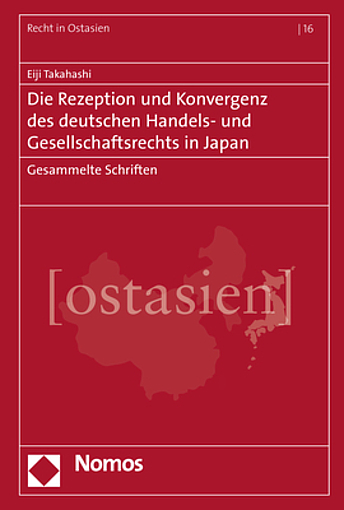englischThe starting point of this book is that although Japanese corporate law was born and developed under the strong influence of German corporate law, after World War II, it has introduced new systems which cannot be explained by mere analogy to German law. For example, the provisions concerning capital in Japanese corporate law had long been interpreted based on the “three principles of capital (Prinzipien der Aufbringung/ dauernden Erhaltung/ Beständigkeit des Grundkapitals)” imported from Germany.
Recently, Japanese and German corporate laws have become similar to each other through their reference to U.S. law without direct mutual exchanges between Japan and Germany. The author identifies this phenomenon as one type of “convergence.”
As an example of the “convergence,” the first article of this book focuses on the business judgement rule. This article analyzes the process and result of the “convergence”: Germany and Japan have separately introduced the rule from U.S. law and developed it in their respective contexts. Based on this analysis, the author suggests that Japan needs an explicit provision on the business judgement rule as the one in Germany.
This book consists of the author’s published articles regarding “reception” and “convergence” of corporate laws between Japan and Germany. One of the greatest aims of this book is the introduction of the concept of “mutual dialogue.” This can be regarded as a new type of “reception” involving U.S. corporate law. By comparing and contrasting how Japan and Germany each learned from U.S law and developed such rules, both Japan and Germany can benefit from each other’s experiences. Such “mutual dialogue” involving U.S. law has a great significance, because these days U.S. corporate law has great influence on corporate laws worldwide. This book can be a milestone for this new type of “reception” which focuses on the interaction among three States: Japan, Germany and U.S.
Das japanische Handels- und Gesellschaftsrecht ist ganz maßgeblich durch das deutsche Recht mit bestimmt worden. So rezipierte Japan beispielsweise die deutschen Prinzipien der Aufbringung, dauernden Erhaltung und zur Beständigkeit des Grundkapitals der AG.
Neuere Entwicklungen im japanischen Handels- und Gesellschaftsrecht sind nicht mehr auf eine Rezeption des deutschen Rechts zurückzuführen. Vielmehr entsteht eine Konvergenz zwischen beiden Rechtsordnungen unter maßgeblichen Einfluss des US-amerikanischen Rechts. Beispielhaft hierfür ist die Einführung der “Business Judgement Rule” in beiden Rechtsordnungen. Japan hat diese Rechtslehre richterrechtlich eingeführt.
Dieses Buch führt die Beiträge von Eiji Takahashi zur „Rezeption“ und „Konvergenz“ des deutschen Handels- und Gesellschaftsrechts in Japan zusammen. Der Autor hofft, dass Japan und Deutschland durch Dialog im Handels- und Gesellschaftsrecht weiterhin kontinuierlich voneinander lernen.


